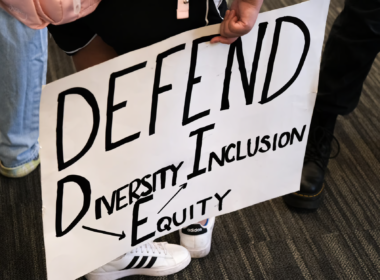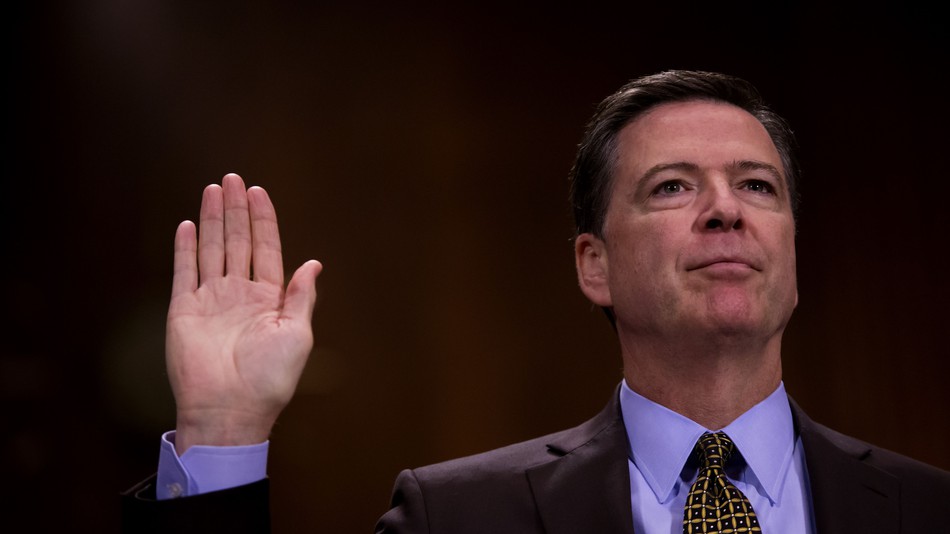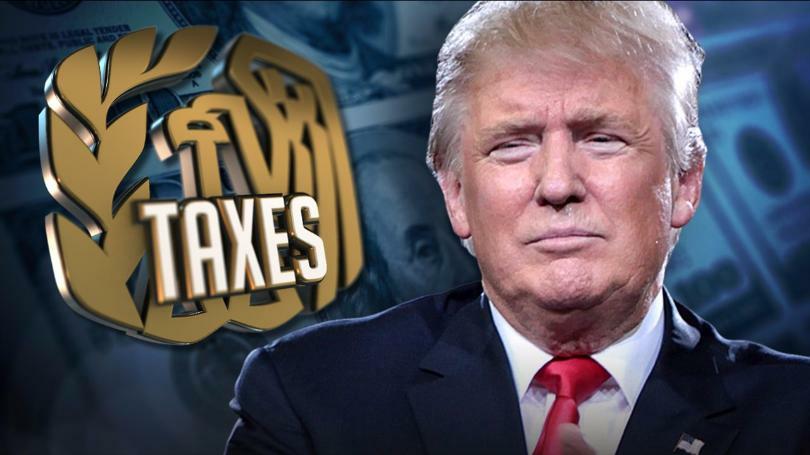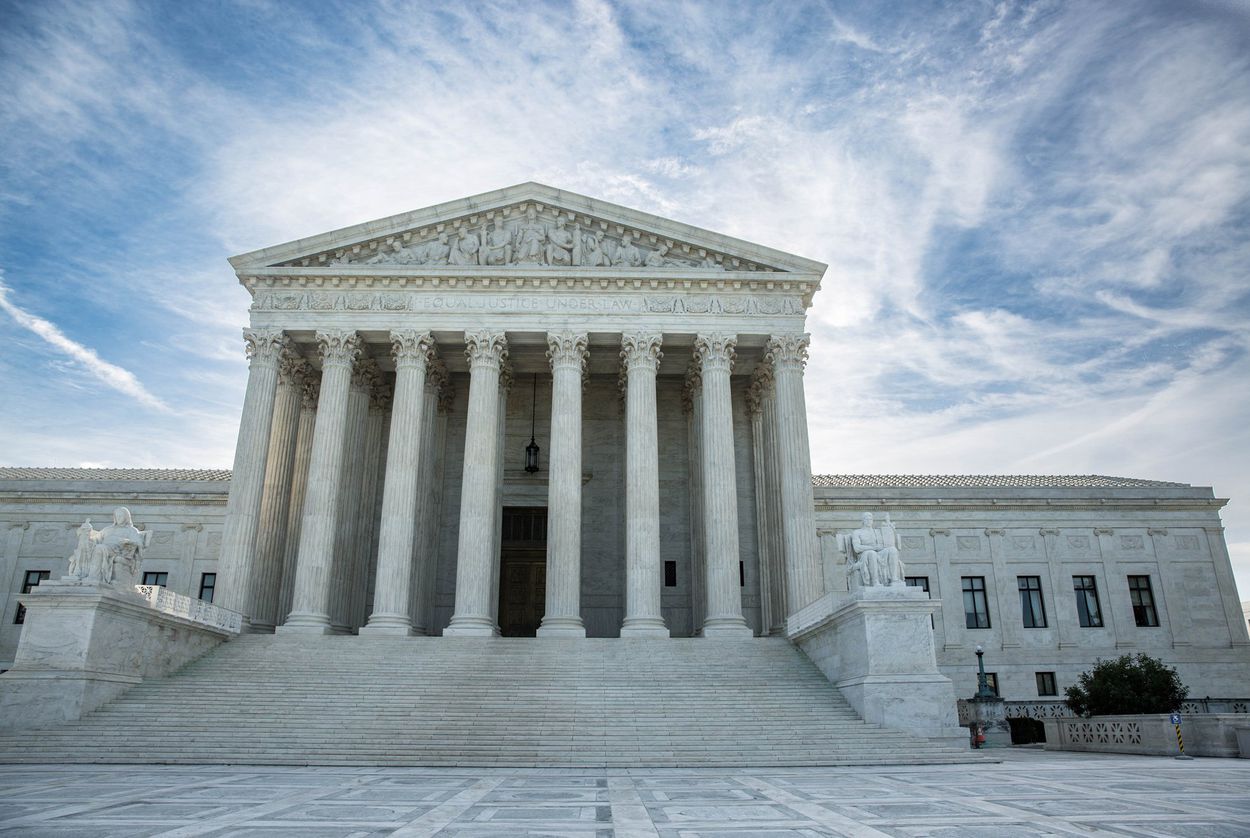Less than 24 hours before former FBI director James Comey was scheduled to testify on Capitol Hill, the Senate Intelligence Committee released his written remarks recounting the relationship between himself and President Donald Trump.
In his statement, Comey described in detail their interactions and conversations, often offering direct quotes from the president drawn from his meticulous memos. Comey’s remarks supported Trump’s claim that Comey repeatedly assured him that he was not personally under investigation. They also indicate that the president made Comey uncomfortable during nine separate private conversations over the course of three months.
According to the remarks, Comey “felt compelled” to keep careful notes of each conversation, which he noted had not been his practice in the past. But the history between the two men long predated Comey’s testimony today before the Senate Intelligence Committee. Here is an overview of events that led to Comey’s conversations with the president, his firing, and his long-anticipated testimony.
- Comey wrote that just a week after Trump was inaugurated in January 2017, he was invited to a private dinner at the White House with the president. Comey wrote, “The president said, ‘I need loyalty, I expect loyalty.’ I didn’t move, speak, or change my facial expression in any way during the awkward silence that followed. We simply looked at each other in silence.” Comey said that the president could always count on him for “honest loyalty,” but that as the FBI director he was not “reliable” in the conventional political sense. He noted that he and the president may have understood the term “honest loyalty” differently.
- Less than a month later on February 14, 2017, the day after former National Security Adviser Michael Flynn resigned, Comey wrote that Trump asked him about the investigation into Flynn’s ties with Russia. He quoted Trump as saying, “I hope you can see your way clear to letting this go, to letting Flynn go. He is a good guy. I hope you can let this go.”
- Comey said Trump called him at the FBI in late March 2017, and claimed that the Russian investigation interfered with his ability to govern and asked what he could do to “lift the cloud.”
- During the last one-on-one conversation between Trump and Comey on April 11, 2017, Trump reiterated the request to “lift the cloud” and asked Comey to “get out” that Trump was not personally under investigation.
- On May 9, 2017, nearly a month later, the president fired Comey. In a letter to Comey, Trump stated that the firing was necessary to restore “public trust and confidence” in the FBI.
Comey had been subject to intense scrutiny in recent months in regards to his handling of an investigation into Democratic nominee Hillary Clinton’s private email server. The White House released a memo from Deputy Attorney General Rod Rosenstein, a letter from Attorney General Jeff Sessions, and a statement from Press Secretary Sean Spicer indicating that Trump acted “based on the clear recommendation” of the Department of Justice.
However, the next day, Trump met with Russian diplomat Sergey Kisliyak and Russian Foreign Minister Sergei Lavrov. During the meeting, he called Comey a “real nut job” and said “I faced great pressure because of Russia. That’s now taken off,” according to a document reported in the New York Times and undisputed by the White House.
On May 11, Trump said in an interview with NBC’s Lester Holt that he made the decision to fire Comey alone and had “this Russia thing” in mind. A week later, Benjamin Witte, a close friend of Comey, told the NewsHour that Comey was “disgusted” by a hug with Trump and considered the White House to be “not honorable.”
At the beginning of today’s testimony in front of the Senate Intelligence Committee, Comey was clear that he understood that he served at the pleasure of the president from the outset and that “the FBI will be fine without me…the FBI is strong, the FBI is honest, and the FBI is and always will be independent.”









